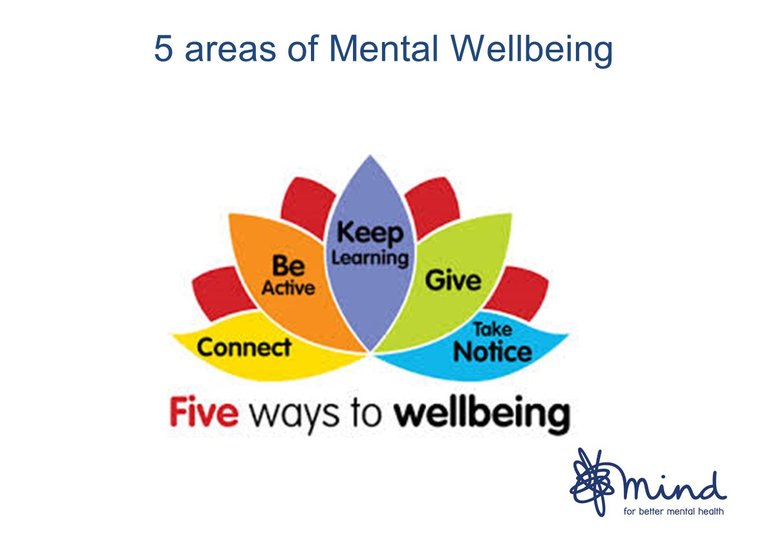Proverbs 23:7 For as he thinketh in his heart, so is he: Eat and drink, saith he to thee; but his heart is not with thee.
A wise man once said, we are a vivid manifestations and represantaations of our thoughts. The manner and way you think determines how you will react to situations. A person who is optimistic will always find the positive aspects of stuff, but for a pessimist, I bet you know better. As a matter of fact, our thoughts can affect how we relate with others. Most people have lost their good friends not because of any greulsome act, but just because the person always had mediocre thoughts and saw the negative aspects of situations. Due to the vital role our thoughts play in our lives, I deem it fit to speak a little about Mental Health.
WHAT IS MENTAL HEALTH?
Mental health is a state of well-being in which the individual realizes his or her own abilities, can cope with the normal stresses of life, can work productively and fruitfully and is able to make a contribution to his or her community A widely accepted definition of health by mental health specialists is psychoanalyst Sigmund Freud's definition: the capacity "to work and to love".
.jpg)
POOR MENTAL HEALTH/MENTAL ILLNESS, IT'S CAUSES AND EFFECTS
Mental illness is a recognized, medically diagnosable illness that results in the significant impairment of an individual’s cognitive, affective or relational abilities. In order words, mental illness is the inability to maintain a healthy mentality.
CAUSES OF MENTAL ILLNESS
There is no laid down cause of mental illness, however, it is becoming clear through research that many of these conditions are caused by a combination of genetic, biological, psychological, and environmental factors -- not personal weakness or a character defect -- and recovery from a mental illness is not simply a matter of will and self-discipline.

EFFECTS OF MENTAL HEALTH
- Withdrawal — Recent social withdrawal and loss of interest in others
- Drop in functioning — An unusual drop in functioning, at school, work or social activities, such as quitting sports, failing in school or difficulty performing familiar tasks
- Problems thinking — Problems with concentration, memory or logical thought and speech that are hard to explain
4)Increased sensitivity — Heightened sensitivity to sights, sounds, smells or touch; avoidance of over-stimulating situations
5)Apathy — Loss of initiative or desire to participate in any activity
6)Feeling disconnected — A vague feeling of being disconnected from oneself or one’s surroundings; a sense of unreality
.jpg)
TREATMENT FOR MENTAL ILLNESS
There are many treatments for mental illness, some are
- Psychological treatment
- Medication
- Community support programs
HOW TO MAINTAIN GOOD MENTAL HEALTH
Value yourself:
Treat yourself with kindness and respect, and avoid self-criticism. Make time for your hobbies and favorite projects, or broaden your horizons. Do a daily crossword puzzle, plant a garden, take dance lessons, learn to play an instrument or become fluent in another language.Take care of your body:
Taking care of yourself physically can improve your mental health. Be sure to:
Eat nutritious meals
Avoid cigarettes -- see Tobacco Cessation Help
Drink plenty of water
Exercise, which helps decrease depression and anxiety and improve moods
Get enough sleep. Researchers believe that lack of sleep contributes to a high rate of depression in college students. See Sleep.Surround yourself with good people:
People with strong family or social connections are generally healthier than those who lack a support network. Make plans with supportive family members and friends, or seek out activities where you can meet new people, such as a club, class or support group.Give yourself:
Volunteer your time and energy to help someone else. You'll feel good about doing something tangible to help someone in need — and it's a great way to meet new people. See Fun and Cheap Things to do in Ann Arbor for ideas.Learn how to deal with stress:
Like it or not, stress is a part of life. Practice good coping skills: Try One-Minute Stress Strategies, do Tai Chi, exercise, take a nature walk, play with your pet or try journal writing as a stress reducer. Also, remember to smile and see the humor in life. Research shows that laughter can boost your immune system, ease pain, relax your body and reduce stress.

Remember, your thoughts have no limits, dream BIG!!
Shalom!
God bless You!